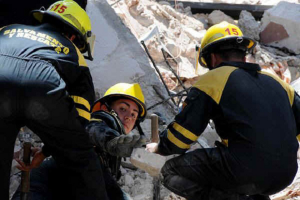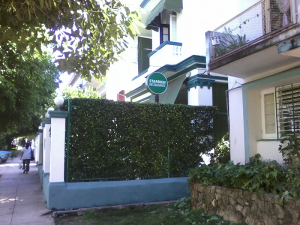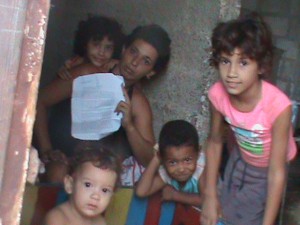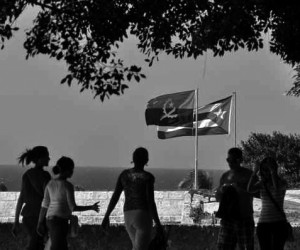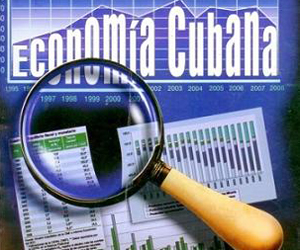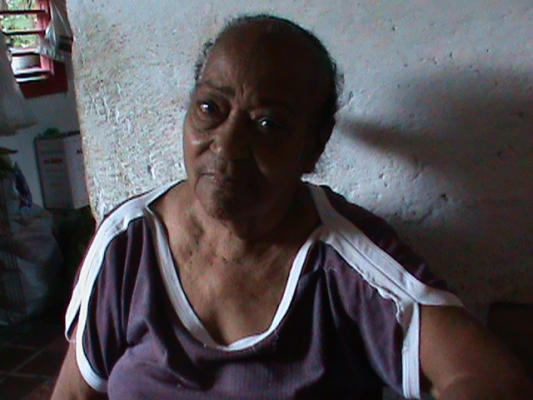
 Cubanet, Frank Correa, Havana, 18 September 2015 – Many stories of the struggle in the Sierra Maestra against the Batista government survive into oblivion, like its protagonists.
Cubanet, Frank Correa, Havana, 18 September 2015 – Many stories of the struggle in the Sierra Maestra against the Batista government survive into oblivion, like its protagonists.
Tomasa Guerra, 92, a native of Palma Soriano, wasa messenger, cook and sometimes guide for the “Antonio Guiteras” Column 9, under the command of Comandante Huber Matos, one of the architects of the Revolutionary triumph of January 1, 1959, ousted in October of that same year for refusing to follow the path of communism.
Although very ill and elderly, Tomasa still enjoys a good memory. Mind you walked with the column 9 since its foundation; sites like El Toro, El Cristo, La Herradura, Sao Grande and San Pablo de Yao, cooking and carrying messages. continue reading
“I was thirty, I was a die-hard revolutionary. I remember like it was yesterday the day I arrived at the camp. I strained a coffee with too much sugar, and instead of criticizing me Comandante Huber said that was how he liked it,” she recalls. “I followed the troops until the end, cooking and serving missions all over the Oriente, always accompanied by my daughter Silva who was 11, who helped me break through fences and outwit operatives pretending to be sick. We carried the fast messages, riding on trucks, on tractors, on whatever appeared. Silvia was one more combatant, because she was also exposed to the danger and the bombs.”
Smiling, she confesses, “We had email at that time. They coordinated the major actions with the messengers. In the battle of Cayo Espino I managed to bring an important message to Fidel, and after a while, hiding with my daughter at a shop in the village, I heard a plane bomb the positions where our men no longer were, thanks to my message arriving on time.”
Excited, she remembers when in the midst of El Cristo battle, she managed to pass a message from Dr. Castanellas for Huber Matos, announcing the birth of his daughter Carmen Luisa, “news that gave an important twist to his actions, because then the commander became a lion and the enemy fled in disarray.”
The contribution of Column 9 to the victory against Batista is undeniable, as are the missions performed by the messenger, cook and guide Tomasa Guerra, who after the triumph of the Revolution was never contacted in recognition of her rebel contributions, nor is her name engraved today on the list of fighters of the Cuban Revolution.
“It’s as if neither Column 9 nor commander Huber Matos ever existed. Having fought with him later became a stigma. I had to work in food service, from where I retired. I survive on 130 pesos [about $5.50 US a month], that I spend on medications. Thankfully my daughter Silvia lives with me and helps me however she can. Yes! The same one who passed herself off as sick to break through fences and outwit operatives! Now she is really sick, like me, and retired from a bodega with a pension that isn’t even enough to die on.”
“Mom has diabetes, hypertension, kidney problems and ischemic heart disease,” says Silvia. “We urgently need three types of medicines that the pharmacy doesn’t have, and a glucose meter; we looked for one a long time, and when it appeared it didn’t work.” Other essential elements also do not appear for the former fighter.
The old woman never forgets an anecdote in the camp. After dinner, on the eve of taking Palma Soriano, when Comandante Huber Matos spoke to the troops he said: “Remember always that with the Revolutionary triumph, we will all enjoy the goods necessary to live.”
“Sometimes I think that that idea was lost, because look at me, in the war I risked my life 100 times, and I have no right even for disposable pads [for her kidney problem]. Peeing oneself is the worst humiliation you can suffer. I spoke several times with Camilo [Cienfuegos], and with the captains Napoleon Becher, Raul Barandela, Miguel Ruiz, Rosendo Lugo, Roberto Cruz. They seemed to me to be men who fought for truth, but where is it? If I were reborn doubt I would expose my daughter again to the bombing. I would have looked for a foreigner, like the young people do today, and resolved my problem of a future in a different way. I’m sure that today I would have the glucose meter and the pads and the medicine, which I need so badly.”


